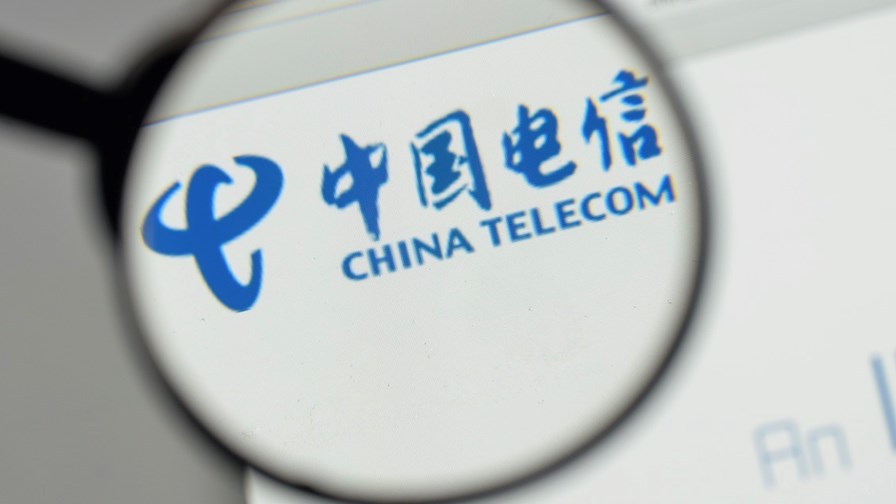
- With the bulk of its 5G investments behind it, China Telecom is ready to pump additional capital into its AI infrastructure and R&D
- In 2024, it intends to spend more on the technology that will enable it to use and offer AI services and workloads
- The telco’s investment strategy will also focus more on cloud, big data and industrial digitalisation developments
After years of hefty investments into deploying an extensive 5G network, China Telecom is now flexing its fiscal muscles to focus more on AI, big data, cloud and industrial digitalisation.
In its annual report for 2023, the Chinese telco giant unveiled plans to tilt its investment focus in 2024 towards what it refers to as “strategic emerging businesses” and industrial digitalisation. These emerging businesses include cloud and computing power technologies, AI, big data, security services, quantum, new-generation information and communication (such as internet of things, or IoT, and satellite communication) and digital platforms.
Its capital expenditure (capex) on these focus areas is expected to rise by 2.5% in 2024 and to account for the largest slice of its overall capex. The company plans to spend CNY36.9bn (US$5.1bn) in these areas, accounting for 38.5% of its total capex, which is expected to be CNY96bn ($13.3bn).
Meanwhile, the investment allocated to its mobile network is set to decrease to 30.7% of total capex in 2024, standing at CNY29.5bn ($4bn). Spending for its broadband network will not see any drastic changes, with its share of the capex pie pinpointed at 16.7% in 2024, or CNY16bn ($2bn). Finally, China Telecom plans to increase its capex into operating systems and infrastructure, which will make up 14.1% of the total capex mix, to approximately CNY13.5bn ($1.8bn).
The Chinese operator’s plans for this year should not come as a surprise – as with the rest of its domestic peers, the company has gone through a phase of significant 5G network investment and is now sporting a very broad national coverage powered by 1.21 million base stations currently in use, and has more than 318 million 5G subscribers (including those subscribed to 5G packages, but not necessarily using the 5G services as they might not have a 5G-enabled device yet).
Another finding from China Telecom’s report shows that the company intends to reduce its overall capex by 2.9%: It is estimated to account for less than 20% of service revenues this year, while in 2023, its capex was equivalent to 21.2% of service revenues.
Alongside a breakdown of its plans for the current financial year, China Telecom put the spotlight on some of the deployments it completed in 2023 at its strategic emerging businesses.
It claimed that AI and big data had grown “rapidly to empower thousands of industries”, including education, tourism, customer service and financial services.
It has founded the Xinghe AI platform, which has more than 10,000 proprietary algorithms for various use cases that are being accessed more than 400 million times per day.
The telco has also created a general-purpose large foundation model (boasting language, speech, visual and multimodal capabilities), as well as 12 large vertical models (for areas such as government administration, education and transportation) and nine large models for its own use in network operation, operational analysis and code research and development, something it claimed will “help itself accelerate digital transformation and push forward costs reduction and efficiency enhancement.”
Looking at its financials, China Telecom booked a 6.7% year-on-year increase in operating revenues to CNY513.5bn ($71bn), while its net profit rose 19.3% to CNY30.4bn ($4.2bn) in 2023. It has added 16.59 million mobile subscribers, pushing the tally up to 407 million. It also made gains in its wireline broadband customer base, adding 9.26 million customers in the period to reach a total of 190 million.
The company has also “further advanced the building of a service-oriented, technology-oriented and secured enterprise” by focusing on digital information infrastructure.
And judging by its investment goals for the year, it appears that the telco has no plans to slow down its efforts to lead what chairman Ke Ruiwen called “the new round of sci-tech revolution and industrial transformation.”
- Yanitsa Boyadzhieva, Deputy Editor, TelecomTV
Email Newsletters
Sign up to receive TelecomTV's top news and videos, plus exclusive subscriber-only content direct to your inbox.




